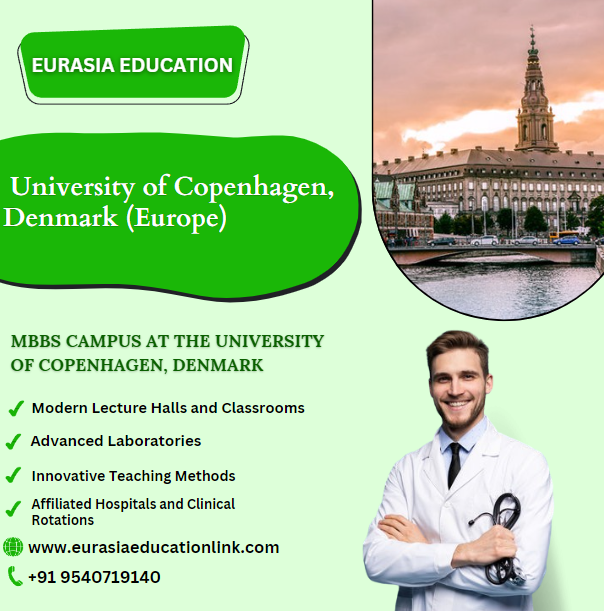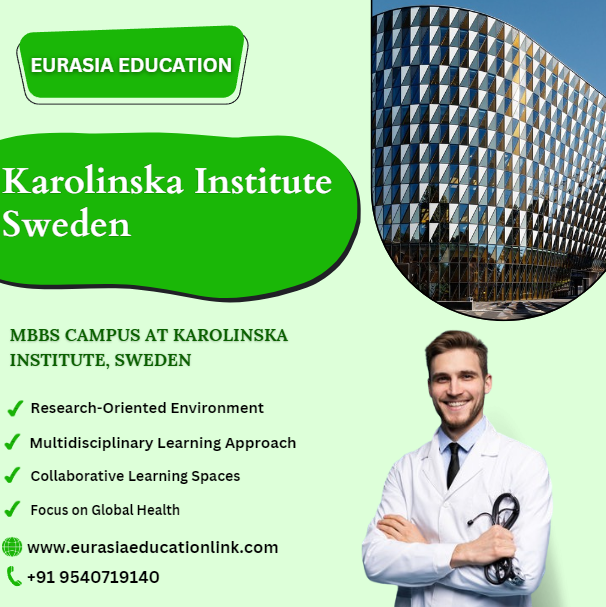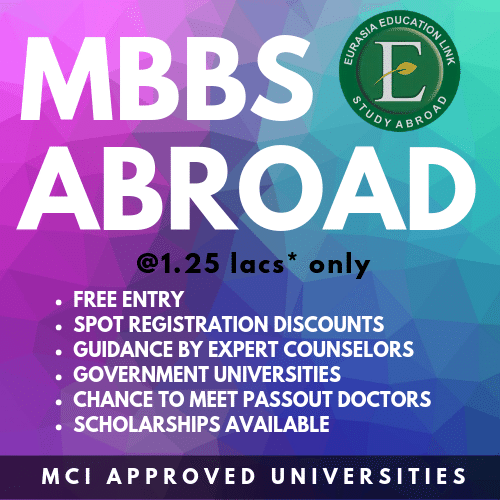The University of Copenhagen, located in the heart of Denmark's capital, is renowned for its prestigious MBBS program. The campus dedicated to medical education, part of the larger Faculty of Health and Medical Sciences, is equipped with state-of-the-art facilities, a vibrant academic environment, and comprehensive support services that ensure a rich learning experience for medical students. This detailed blog explores the various aspects of the MBBS campus at the University of Copenhagen.
1. Modern Lecture Halls and Classrooms
The University of Copenhagen's MBBS campus features modern lecture halls and classrooms designed to facilitate effective learning. These spaces are equipped with advanced audio-visual aids, interactive whiteboards, and comfortable seating arrangements to enhance the educational experience. The lecture halls can accommodate large groups for lectures, while smaller classrooms are perfect for seminars and group discussions.
2. Advanced Laboratories
A cornerstone of medical education is hands-on experience, and the MBBS campus at the University of Copenhagen excels in this area. The campus boasts advanced laboratories for various disciplines, including:
- Anatomy Labs: Equipped with cadaver dissection facilities and 3D anatomical models to provide an in-depth understanding of the human body.
- Biochemistry and Physiology Labs: State-of-the-art equipment allows students to conduct experiments and understand the biochemical and physiological processes of the human body.
- Microbiology and Pathology Labs: Cutting-edge tools and specimens help students learn about pathogens and diseases, fostering a practical understanding of medical microbiology and pathology.
3. Clinical Skills Centers
The Clinical Skills Centers on the MBBS campus provide simulated patient environments where students can practice medical procedures and patient interactions. These centers are equipped with:
- Mannequins and Simulators: High-fidelity mannequins and task trainers that simulate real-life medical scenarios.
- Virtual Reality Stations: Advanced VR technology to practice surgical procedures and diagnostic techniques in a virtual environment.
- Examination Rooms: Realistic setups where students can practice patient consultations and examinations.
4. Affiliated Hospitals and Clinical Rotations
One of the key strengths of the MBBS program at the University of Copenhagen is its strong affiliation with leading hospitals and clinics in the city. These partnerships ensure that students receive extensive clinical training in real-world medical settings. Key affiliated hospitals include:
- Rigshospitalet (Copenhagen University Hospital): A top-tier hospital providing a wide range of medical services and specialties.
- Bispebjerg Hospital: Known for its comprehensive healthcare services and advanced medical research.
- Herlev Hospital: A major teaching hospital offering diverse clinical training opportunities.
Students undergo rotations in various departments, gaining hands-on experience in specialties such as Internal Medicine, Surgery, Pediatrics, Obstetrics and Gynecology, Psychiatry, and Emergency Medicine. These rotations are supervised by experienced medical professionals, ensuring that students develop practical skills and clinical competence.
5. Library and Research Facilities
The MBBS campus features extensive library and research facilities to support students' academic and research endeavors. The library provides:
- Vast Collection of Resources: A comprehensive range of medical books, journals, and electronic resources.
- Study Spaces: Quiet study areas, group study rooms, and computer workstations to facilitate learning and research.
- Access to Online Databases: Subscriptions to leading medical and scientific databases, enabling students to access the latest research and publications.
Research is a critical component of the MBBS program, and the university's research facilities are designed to support innovative projects and collaborations. Students are encouraged to participate in research activities, contributing to advancements in medical science.
6. Student Support Services
The University of Copenhagen is committed to providing a supportive environment for its students. The MBBS campus offers a range of support services, including:
- Academic Advising: Personalized guidance to help students navigate their academic journey and achieve their goals.
- Career Services: Assistance with career planning, internships, job placements, and further studies.
- Mental Health and Counseling Services: Professional counseling and mental health support to ensure students' well-being.
- Accommodation Services: Help with finding suitable housing in Copenhagen, including university dormitories and private rentals.
7.Student Life and Extracurricular Activities
Beyond academics, the University of Copenhagen offers a vibrant student life with numerous extracurricular activities and student organizations. Medical students can join various clubs and societies, participate in cultural events, and engage in sports and recreational activities. This well-rounded university experience helps students develop social skills, build networks, and maintain a healthy work-life balance.
8. Global Recognition and Networking Opportunities
The MBBS degree from the University of Copenhagen is globally recognized, offering graduates a competitive edge in the international job market. The university's strong ties with leading healthcare institutions, research centers, and medical organizations provide excellent networking opportunities. Graduates are well-prepared for various career paths, from clinical practice to research and academia.
9. Innovative Teaching Methods
The University of Copenhagen employs innovative teaching methods to enhance the learning experience. These include:
- Problem-Based Learning (PBL): An interactive approach where students work in small groups to solve complex medical cases.
- Flipped Classroom: Students study course material online before attending interactive, discussion-based classes.
- Simulation-Based Training: Using simulators and virtual reality to practice medical procedures and patient interactions in a safe environment.
10. Sustainable and Inclusive Campus
The University of Copenhagen is committed to sustainability and inclusivity. The MBBS campus incorporates environmentally friendly practices and facilities, promoting a green and sustainable lifestyle. The university also fosters an inclusive environment, welcoming students from diverse backgrounds and ensuring equal opportunities for all.
Conclusion
Studying MBBS at the University of Copenhagen, Denmark, offers an exceptional educational experience in a dynamic and supportive environment. With its comprehensive curriculum, state-of-the-art facilities, experienced faculty, extensive clinical training, and vibrant student life, the university provides the ideal setting for aspiring medical professionals. The global recognition of its MBBS program and the promising career prospects further solidify its position as a top choice for medical education.















